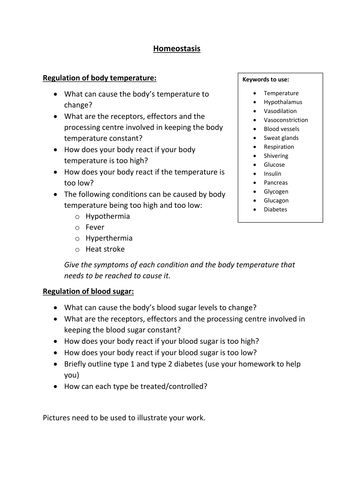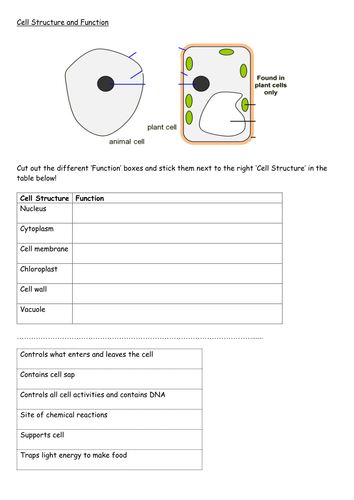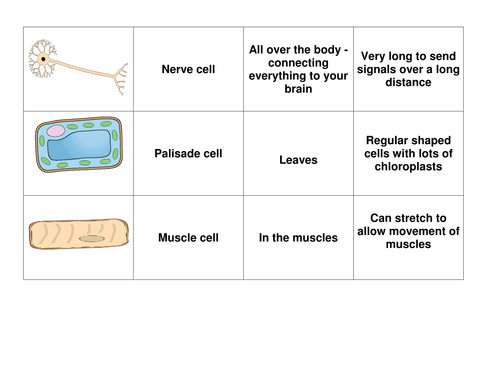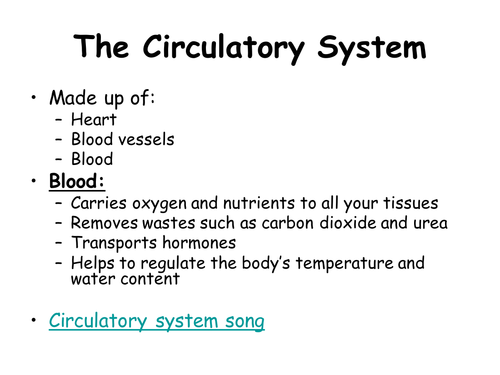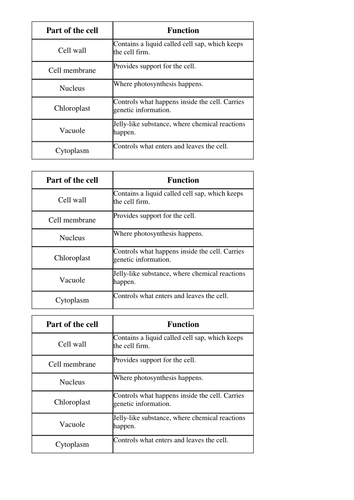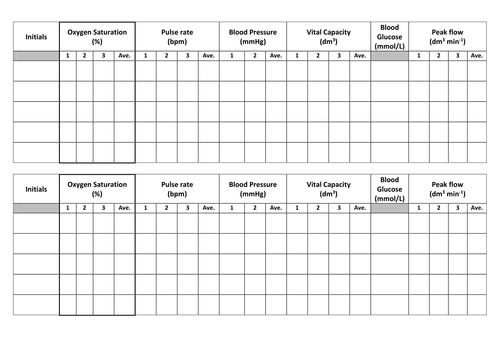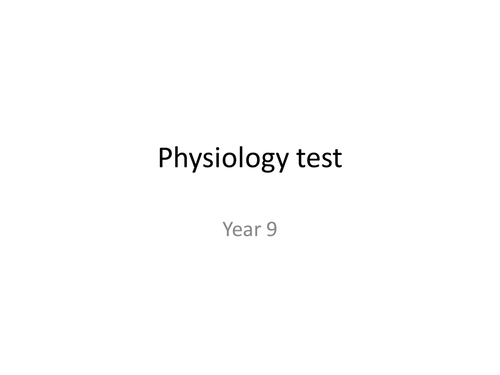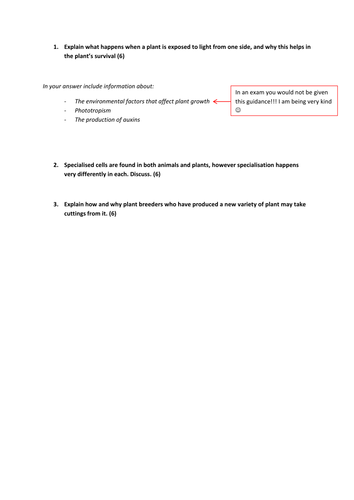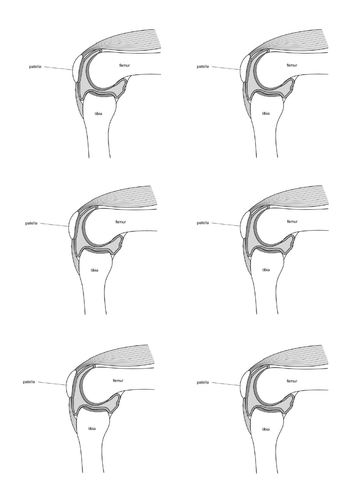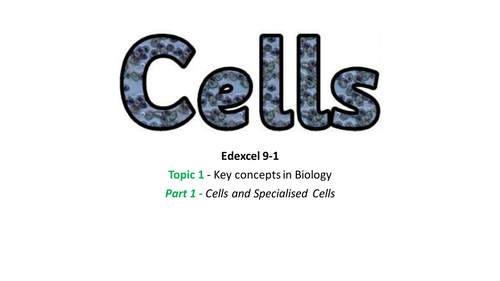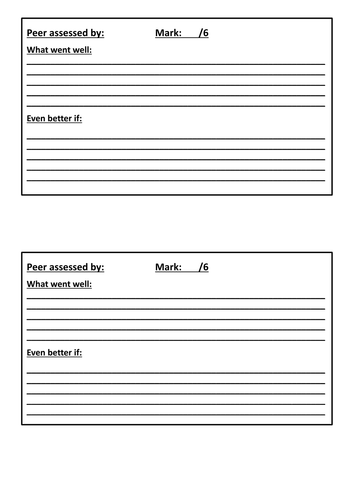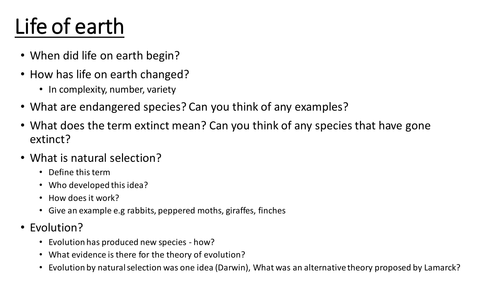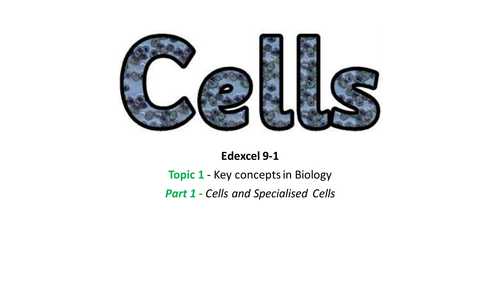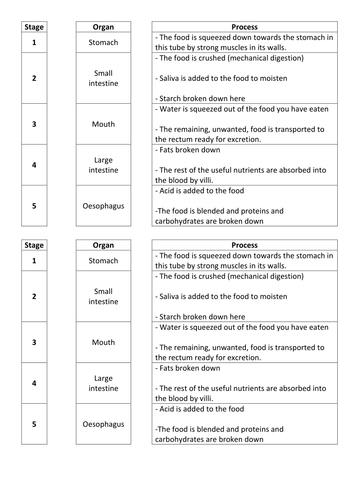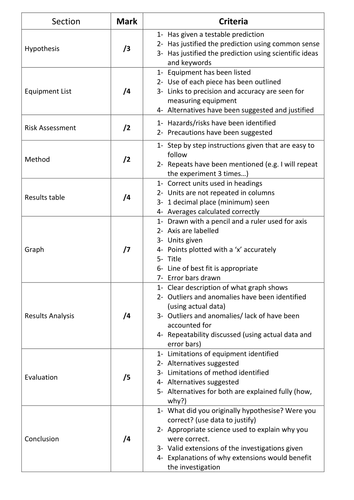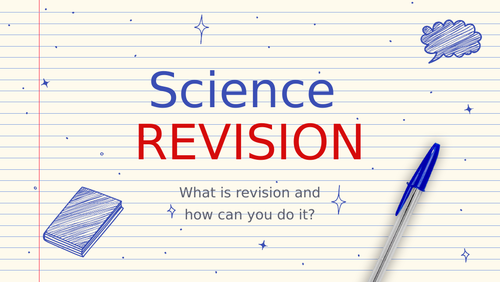
91Uploads
54k+Views
3k+Downloads
Biology

Homeostasis research task
Ideal for a cover lesson or computer room lesson.
Cover regulation of temperature and blood glucose
Questions to answer and keywords to support.

Cell Structure and Function Starter - Year 7
Cell Structure and Function Starter - Made for year 7 but can be used with any KS3

Circulatory System
explain what is meant by a double circulatory system
2. understand that the blood carries glucose molecules and oxygen to the muscles, and waste products such as carbon dioxide away from muscles
3. relate the components of the blood to their functions, including:
a. red blood cells – transport oxygen
b. white blood cells – fighting infections
c. platelets – blood clotting at injury sites
d. plasma – transporting nutrients (e.g. glucose and amino acids), antibodies, hormones and waste (carbon dioxide and urea)
4. understand how red blood cells are adapted to their function, limited to:
a. packed with haemoglobin (to bind oxygen)
b. no nucleus (more space for haemoglobin)
c. biconcave shape (increased surface area for oxygen exchange)
5. describe and name the main structures and blood vessels of the heart including the left and right atria and ventricles, vena cava, aorta, pulmonary vein, pulmonary artery, coronary arteries and valves
6. describe the function of valves in the heart and veins
7. understand how tissue fluid is formed in capillary beds and that it assists the exchange of chemicals by diffusion between capillaries and tissues, to include oxygen, carbon dioxide, glucose and urea.

Data table Vital signs
Data table designed to support students collect data from peers while carrying out the following techniques:
Oxygen saturation
Pulse rate
Blood Pressure
Vital capacity
Blood glucose
Peak Flow
Table includes space to record 3 readings for each participant and space to calculate averages.

Long response questions - plants
Could be used as a homework activity or a plenery during a lesson - possibility for peer assessment

Coursework graph drawing and results analysis
Coursework graph drawing and results analysis - linked to assessment criteria

Cells and specialised cells full lesson
Includes videos, notes, activities and assessment throughout.
Can be used with a KS3/4 class.

Extended response question - peer assessment sheet
Extended response question - peer assessment sheet

Unit 4 Forensic investigation Procedures in Practice: Introduction to the unit
Short PowerPoint introducing Unit 4 of the BTEC course ‘Forensic and Criminal Investigation’ (converted from gogle slides format)
What will be covered
Learning aims and their content
Assessment criteria table
Space to add your assignment brief
Some useful websites for learning aim A

Life on Earth project - (Evolution and Natural Selection)
Questions to guide students through independent learning project on life on earth.
Including:
Complexity
Extinction
Natural selection
Evolution
Could be used as a homework project or computer room lesson.

Cells and Specialised Cells (Edexcel GCSE Biology 9-1)
Powerpoint including assessment activities, notes and videos for Part 1 - cells and specialised cells of Topic 1 - Key concepts in Biology

Digestive System- starter/plenary
Digestive System Match up activity. Great starter/Plenary
Stage --> Organ --> Process

Microscopy (Edexcel GCSE Biology 9-1)
Powerpoint presentation including assessment materials, notes, videos and practical activities.

Experiment write up - Assessment criteria
Students to have a laminated copy of this while completing an experiment write up.
Could be used alongside the peer assessment sheet where students can rpovide formative feedback to each other and areas for improvement.

How to Revise Science
PowerPoint/Google Slideshow covering
What is revision?
why revise?
The brian
How to revise - time management
- how to prioritse
- Revision techniques
- suggested websites/apps/podcasts etc
- least effective methods
Great starting point for any year group on where to begin with their revision.

